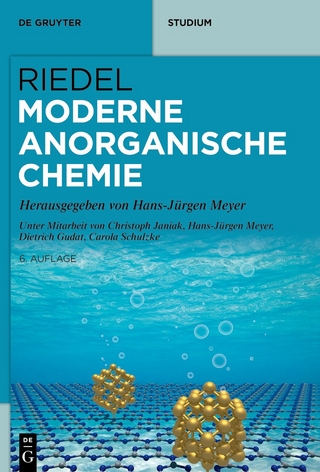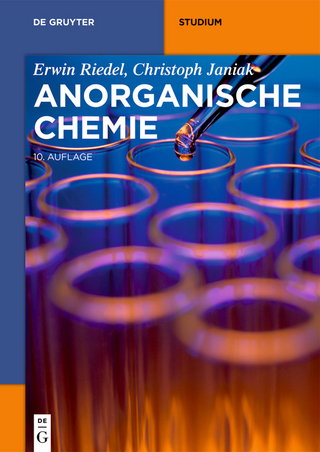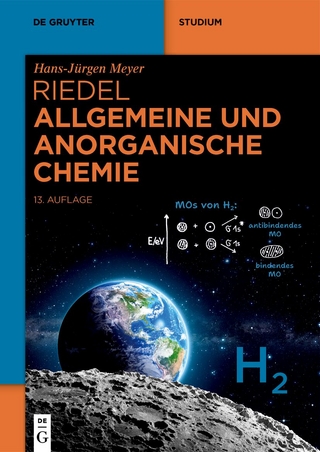
Water-Stable Metal-Organic Frameworks (WSMOFs)
Elsevier - Health Sciences Division (Verlag)
978-0-443-29256-9 (ISBN)
- Noch nicht erschienen (ca. Juli 2025)
- Versandkostenfrei innerhalb Deutschlands
- Auch auf Rechnung
- Verfügbarkeit in der Filiale vor Ort prüfen
- Artikel merken
Developing water-stable MOFs is the key to advancing effective water purification techniques, but the primary challenge lies in crafting MOF structures that can maintain their stability when exposed to water.
Lei Guo received his PhD degree in materials chemistry from the Chongqing university of china. His research is dedicated to synthesis and characterization of organic molecules and their application towards corrosion inhibition property for the protection of metals and alloys from acid corrosion. His interests also encompass theoretical and experimental research in condensed matter physics Tahir Rasheed is a researcher at the Interdisciplinary Research Center for Advanced Materials, King Fahd University of Petroleum and Minerals, Saudi Arabia. His research interests focus on multiple disciplines including controllable synthesis, characterization and self-assembly of polymeric materials, polymer-based composites, nanomaterials and nanocomposites, and hybrid nanocomposites, with special emphasis on their potential applications in the field of sensing and biosensing, electrocatalysis, and the degradation and quantification of various emerging pollutants. Chandrabhan Verma, PhD, works at the Interdisciplinary Research Center for Advanced Materials, King Fahd University of Petroleum and Minerals, Dhahran, Saudi Arabia. He is a member of the American Chemical Society (ACS). His research interests mainly focus on the synthesis and design of environment-friendly corrosion inhibitors used for several industrial applications. Dr. Verma received his PhD degree from the Department of Chemistry at IIT?BHU, Varanasi, India and MSc degree in organic chemistry (Gold Medalist). Dr. Verma is the author of several research and review articles in peer-reviewed international journals. He has also received several national and international awards for his academic achievements. Chaudhery Mustansar Hussain is an Adjunct Professor and Director of laboratories in the Department of Chemistry & Environmental Sciences at the New Jersey Institute of Technology (NJIT), United States. His research is focused on the applications of nanotechnology and advanced materials, environmental management, analytical chemistry, and other various industries. Dr. Hussain is the author of numerous papers in peer-reviewed journals as well as a prolific author and editor of around 150 books, including scientific monographs and handbooks in his research areas.
Part 1: BASICS and FUNDAMENTALS
1. Water-stable MOFs-based Materials: Fundamental, Properties and Applications
2. Water-stable MOFs-based Materials: Synthesis, Design, and Characterization
3. Theoretical Modeling to Design Water-stable MOFs-based Materials
4. Stability (thermodynamics) of Water-stable MOFs-based Materials
5. Selection Criteria of Water-stable MOFs-based Materials for Environmental and Sensing Applications
Part 2: Water-stable MOFs-based Materials for Environmental Remediation
6. Water-stable MOFs-based Materials for Remediation of Water Soluble Gases
7. Water-stable MOFs-based Materials for Removal of Toxic Heavy Metals
8. Water-stable MOFs-based Materials for Sequestration of Radionuclides and Toxic Ions
9. Water-stable MOFs-based Materials for Removal of Pharmaceutical-based Pollutants
10. Water-stable MOFs-based Materials for Removal of Organic Dyes
11. Water-stable MOFs-based Materials for Sorption Degradation of Personal Care Products
12. Water-stable MOFs-based Materials for Degradation of Pesticides
Part 3: Water-stable MOFs-based Materials for Sensing Applications
13. Water-stable MOFs-based Materials as Electrochemical Sensors
14. Water-stable MOFs-based Materials as Optical Sensors
15. Water-stable MOFs-based Materials as Biosensors
16. Water-stable MOFs-based Materials as Analytical/Biosensing Applications
17. Water-stable MOFs-based Materials for Strain Sensors
18. Water-stable MOFs-based Materials for Other Sensing Applications
19. Cost analysis for scaling up the MOFs-based Materials for industrial applications
| Erscheint lt. Verlag | 1.7.2025 |
|---|---|
| Verlagsort | Philadelphia |
| Sprache | englisch |
| Maße | 152 x 229 mm |
| Themenwelt | Naturwissenschaften ► Chemie ► Anorganische Chemie |
| ISBN-10 | 0-443-29256-6 / 0443292566 |
| ISBN-13 | 978-0-443-29256-9 / 9780443292569 |
| Zustand | Neuware |
| Haben Sie eine Frage zum Produkt? |
aus dem Bereich


